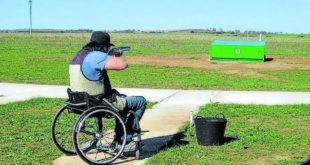The National Confederation of Persons with Disabilities (ESAMS) and the Institute of IN-ESA, in collaboration with the MSC Global Health – Disaster Medicine of the Medical School of the National and Kapodistrian University of Athens, carried out and presented the first nationwide survey on Attitudes & Perceptions of People with Disabilities, Chronic Diseases and Their Families for Preventive Vaccination1. The survey was conducted online from 21 to 27 December 2020 involving 847 people with disabilities and/or chronic conditions, parents, guardians, legal advocates for people with Down syndrome, autism, mental disability and other severe-multiple disabilities. More than 400 Member Organisations of the ESMSA were actively involved and according to the results:
- 75.9% of participants are in favour of vaccination and consider that people with disabilities and/or chronic conditions are more exposed to SARS-CoV-2, mainly due to social factors;
- 78.4% of participants consider that people with disabilities and/or chronic conditions should have priority in vaccination for COVID-19,
- 67.1% believe that priority should also be given to preventive vaccination of caregivers, personal assistants, escorts and other persons in their support network, while at the same time more than half of participants state that there is a need for a daily presence of a third party;
- 73.8% said they used the digital governance services created during the COVID-19 pandemic to facilitate citizens' transactions with public health and social care services and more than 70% said they were very, very satisfied with their use,
- 94.1% argue that vaccination centres should be accessible;
- 86.9% consider it necessary to provide accessible information on preventive vaccination;
- 76% believe that an information and awareness-raising campaign on preventive vaccination targeted at people with disabilities would be useful. At the same time, the majority of participants state that they are moderate to no informed by the relevant Government bodies on preventive vaccination against COVID-19, and
- 73.4% of participants want to participate in decision-making on the national vaccination strategy through their representative organisations.
 paralympicus.gr Olympics and Paralympics
paralympicus.gr Olympics and Paralympics 





